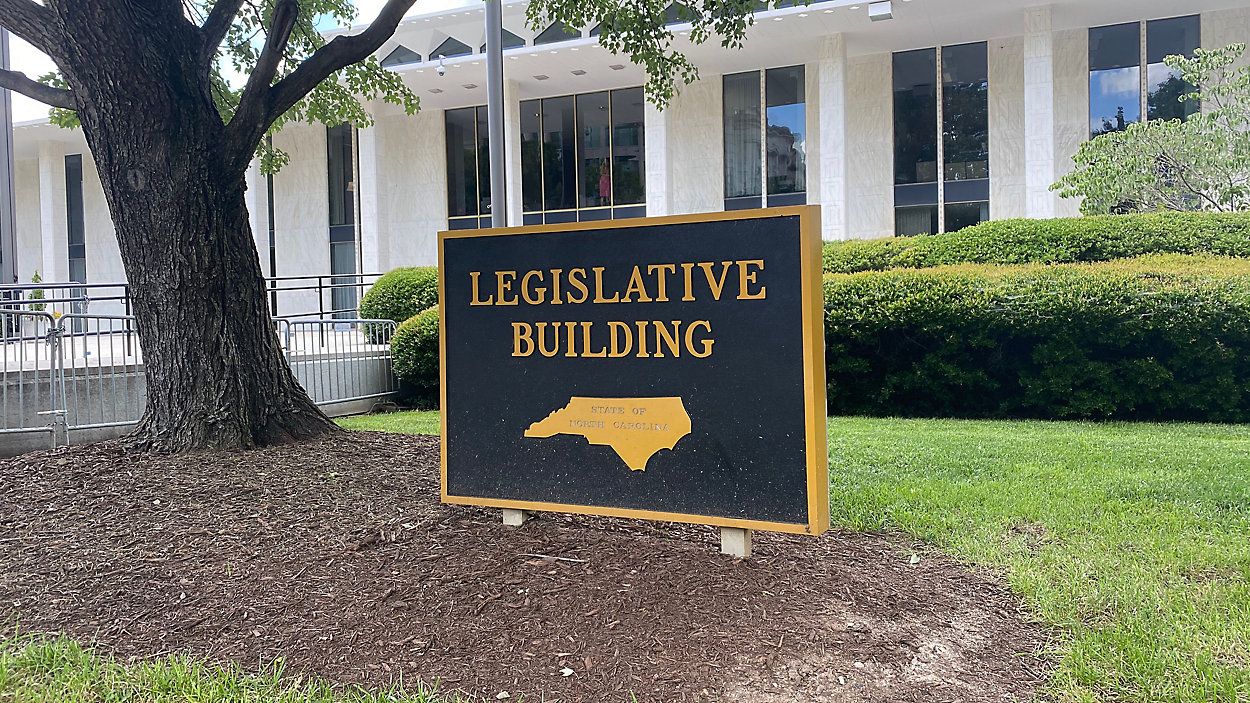The future of abortion access in North Carolina is on the table at the General Assembly. Democrats and Republicans have very different ideas of what abortion laws should look like in the state.
The United States Supreme Court last year overturned Roe v. Wade, which guaranteed access to abortion. The Dobbs decision left it up to the states to decide on their own abortion laws. Since the decision, many states have moved to severely restrict abortion.
“Keeping politicians from making health care decisions for your family is why we are here today,” said Sen. Sidney Batch, a Wake County Democrat. “Living a safe and healthy life is a basic right, and that includes being able to have an abortion.”
Democratic leaders in the North Carolina House and Senate filed identical bills that would codify the protections in Roe v. Wade, guaranteeing access to abortion before “fetal viability.”
Currently, North Carolina law makes abortion legal up to 20 weeks of pregnancy.
But Republicans, who have a supermajority in the state Senate and are one seat shy of a supermajority in the House, are planning their own legislation that would restrict abortion.
Gov. Roy Cooper, a Democrat, has vowed to veto any bills that would further restrict abortion in North Carolina. But with such a slim margin in the House, the Republicans would only need one Democrat to vote with them or sit out a vote to override the veto.
There has also been talk of changing the rules in the House so Republicans would not need to give the customary 24-hour notice to Democrats before holding a veto-override vote.
“For almost 50 years, North Carolinians have had the ability to make one of life’s most important decisions,” said Rep. Robert Reives, the Democratic leader in the House. “Over the last several weeks, it’s become clear that Republican leadership are eager to drag us backward.”
Republicans have not yet filed their bills, so it is unclear exactly what the restrictions could look like. During the campaign season last year, Republicans spoke about restrictions like a “heartbeat ban” or a ban on abortion after 12 weeks.
In a statement last summer, Senate Leader Phil Berger said, “Polling shows that a majority of North Carolinians support reasonable regulations on abortion after 20 weeks of pregnancy, and more North Carolinians support regulations after six weeks than oppose it.”
House Speaker Tim Moore last month suggested Republicans in the General Assembly were moving toward an agreement to ban abortion after the first trimester, about 12 or 13 weeks of pregnancy, according to the Associated Press.
GOP leaders in the General Assembly, who have wide powers on what bills even get heard, said the Democrats’ bill, “Codify Roe and Casey Protections,” will not even be considered.
Even if the Democrats’ bill never sees the light of day, the debate over abortion restrictions promises to be front and center at the legislature along with other hot-button issues like Medicaid expansion, medical marijuana, LGBTQ laws and questions about teaching the history of race in schools.
During a news conference Thursday morning, Democrats said any new abortion restrictions could hurt economic development in North Carolina. The state has added tens of thousands of new jobs in recent years, but the shadow of the 2016 “Bathroom Bill” and the economic damage that law did still loom large over the General Assembly.
“The business community across America has spoken out against abortion bans in other states. They know the science, they understand the data, and comprehend how detrimental it is to their employees, families and our economy,” Batch said.
“I am confident that they will join us in standing up for the freedoms of North Carolina women and their families,” she said.
The Republicans control both chambers in the General Assembly and it will be up to the party leaders what legislation gets heard, and what does not. Either way, abortion will be front and center for debate in the legislature this year.
